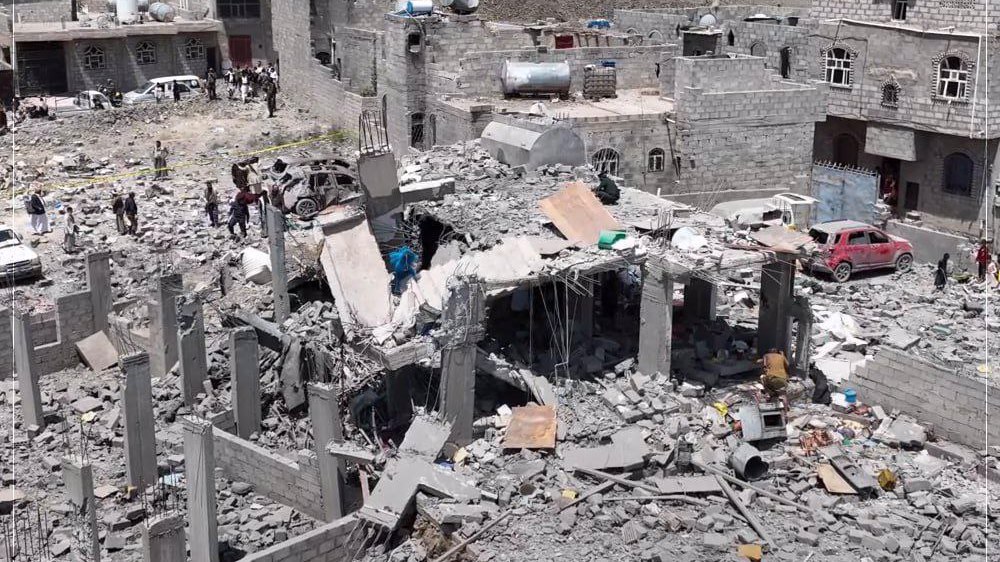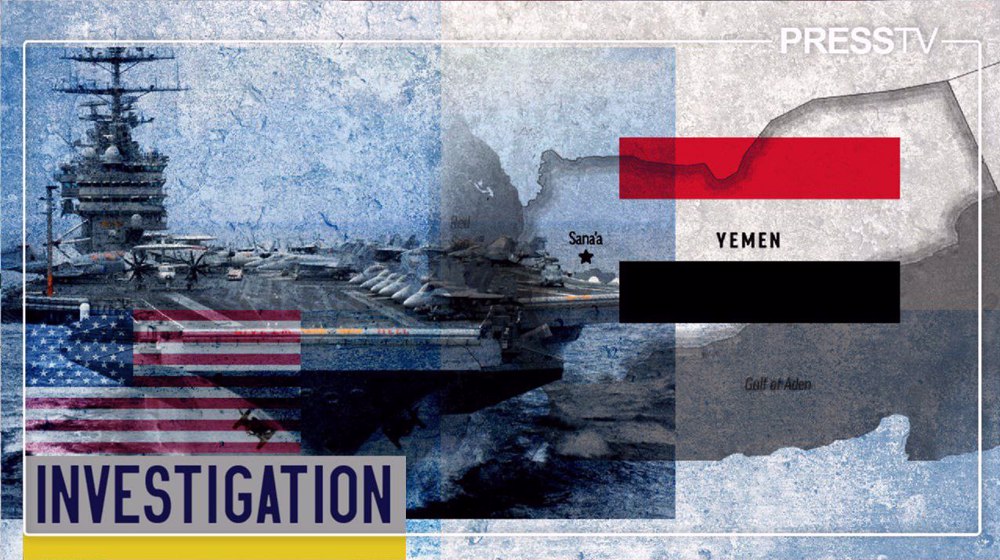UN Security Council authorizes monitors to observe ceasefire in Yemen’s Hudaydah
The United Nations Security Council (UNSC) has voted unanimously to authorize the deployment of UN monitors to observe the implementation of a newly-agreed ceasefire in Yemen’s vital port of Hudaydah and the pullout of rival forces from the flashpoint area.
The warring parties in Yemen -- the country’s Houthi Ansarullah movement and the armed militia loyal to former Yemeni president Abd Rabbuh Mansur Hadi -- reached an agreement on a ceasefire in the Red Sea Houthi-held port on December 13.
According to the agreement, which was signed during UN-brokered peace talks held in the Swedish capital of Stockholm, Houthi fighters and Hadi’s forces, which have put the city under a tight siege since June, must withdraw from the port and hand it over to UN observers.
On Friday, a UK-drafted resolution supporting the truce was adopted, the first UN resolution on the impoverished country in more than three years.
The limited ceasefire and withdrawal, if implemented, could offer a potential breakthrough in the nearly four-year imposed war that has brought Yemen to the brink of starvation and created the world's worst humanitarian crisis.
Britain's UN Ambassador Karen Pierce praised the UNSC’s unanimity “on this very important issue that affected so many millions of citizens in Yemen today.”
“The most important matter now is that we turn to urgent implementation. It’s vital that the parties follow through on their commitments to pave the way for a formal re-launch of (peace) negotiations, and at the same time deliver real improvements on the ground that make a tangible difference to ordinary Yemenis,” she added.
The fragile truce, which went into effect on Tuesday, has halted months of heavy fighting in Hudaydah, through whose docks more than 70 percent of Yemen’s imports used to pass.
UN spokesman Stephane Dujarric urged all parties “to abide by the commitments made in Stockholm.” He added that retired Dutch Major General Patrick Cammaert, who is heading the UN monitoring operation in Yemen, has already deployed to the region with a small advance team.
“We'll be deploying additional personnel in the coming days as we scale up to support and facilitate the implementation of the agreement,” he further said, stressing that Secretary-General Antonio Guterres is insisting that monitors are deployed very “quickly.”
Dujarric also said the monitoring team, whose members will not wear uniforms but will be clearly identified as being from the UN, will include some observers from other UN missions.
The resolution authorizes the UN chief “to establish and deploy, for an initial period of 30 days ... an advance team to begin monitoring and to support and facilitate the immediate implementation of the Stockholm agreement.”
It also endorses the truce agreement, a prisoner exchange agreement, and a “statement of understanding” aimed at reducing fighting in the central city of Ta’izz, another hotspot in the Yemeni conflict.
The resolution also requests Guterres to submit proposals “as soon as possible before December 31” on how the UN will fully support the truce, the redeployment of the rival forces from the port city and other provisions in the agreement.
Meanwhile, at least four people were killed in Yemen’s province of Jawf after Saudi warplanes’ airstrikes hit an ambulance. According to the Yemeni Health Ministry, the victims were paramedics.
Leading a coalition of its allies, Saudi Arabia invaded Yemen in March 2015 in an attempt to reinstall Saudi-backed Hadi, who had resigned amid popular discontent and fled to Riyadh.
The imposed war initially consisted of an aerial campaign, but was later coupled with a naval blockade and the deployment of ground mercenaries to Yemen. Furthermore, armed militia forces loyal to Hadi, in line with invaders, launched frequent attacks against Yemeni people in regions held by Houthis.
Since the onset of aggression, the Yemeni army, backed by fighters from Houthi Ansarullah movement, has been defending the impoverished nation against the invaders. The coalition is also resolute to crush the movement as another goal in its war on Yemen, which is teetering on the edge of famine.
The aggression is estimated to have left 56,000 Yemenis dead.
The Saudi-led war has also taken a heavy toll on the country’s infrastructure, destroying hospitals, schools, and factories. The UN has already said that a record 22.2 million Yemenis are in dire need of food, including 8.4 million threatened by severe hunger. According to the world body, Yemen is suffering from the most severe famine in more than 100 years.
A number of Western countries, the US and Britain in particular, are also accused of being complicit in the ongoing aggression as they supply the Riyadh regime with advanced weapons and military equipment as well as logistical and intelligence assistance.

American warplanes strike Yemen around 30 times in less than a day

Two-pronged retaliation: Yemen strikes Israeli targets in Yaffa, US destroyers in Red Sea

Collapsing Empire: Yemen shatters the illusion of US air power, yet again
Israeli forces kill Palestinian-American teenager in West Bank
Deal within reach if US shows genuine will in Oman talks: Araghchi
Russia’s State Duma approves 20-year strategic partnership treaty with Iran
Trump threatens additional 50% tariffs on China as trade war escalates
Pro-Palestine activists facing deportation decry German state repression
Netanyahu ‘returned empty-handed’ from US after Trump announced planned Iran talks: Reports
'Stab in the back': Hamas slams PA crackdown on pro-Gaza rallies in West Bank
Saudi police ‘detain’ female pilgrim for displaying Palestinian flag in Mecca















 This makes it easy to access the Press TV website
This makes it easy to access the Press TV website